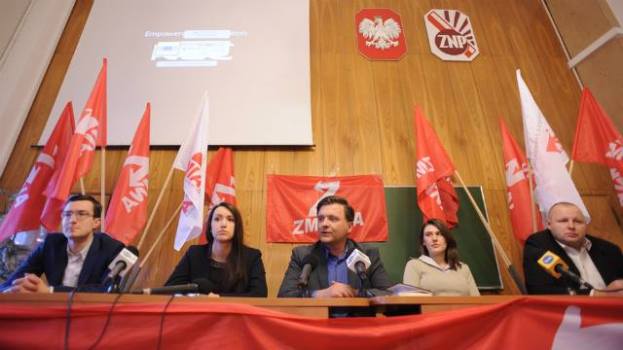 By: Andrés Barrera González, – PhD in Political Science and Sociology, Profesor Titular at the University Complutense of Madrid.
By: Andrés Barrera González, – PhD in Political Science and Sociology, Profesor Titular at the University Complutense of Madrid.
Edited by: Joaquin Flores
The Rise and Transformation of American Militarism and Imperialism after World War Two

Part I: Europe After World War Two
 hroughout the 19th century world affairs were dominated by Europe’s great colonial and imperial powers: Britain, France, Austria-Hungary, Germany, Russia, and the Ottomans on the south-eastern fringes of the continent. Rivalry and competition for the world’s resources between the European ‘great powers’ and colonial metropolises reached a peak at the end of the century. And this was the background setting that brought Europe to war and catastrophe during 1914-18. It was the first act in the dramatic demise of Europe’s world hegemony. The second and final act of the fall of Europe as the axis of global power took place during the 1939-45 war, which again had the continent as its main theatre of operations. World War Two caused unprecedented material destruction, and it took an appalling toll in human life. It also led to the first nuclear holocaust, triggered by the arbitrary decision of the government of the United States to test-drop recently built atomic bombs on the cities of Hiroshima and Nagasaki in August 1945 [i].
hroughout the 19th century world affairs were dominated by Europe’s great colonial and imperial powers: Britain, France, Austria-Hungary, Germany, Russia, and the Ottomans on the south-eastern fringes of the continent. Rivalry and competition for the world’s resources between the European ‘great powers’ and colonial metropolises reached a peak at the end of the century. And this was the background setting that brought Europe to war and catastrophe during 1914-18. It was the first act in the dramatic demise of Europe’s world hegemony. The second and final act of the fall of Europe as the axis of global power took place during the 1939-45 war, which again had the continent as its main theatre of operations. World War Two caused unprecedented material destruction, and it took an appalling toll in human life. It also led to the first nuclear holocaust, triggered by the arbitrary decision of the government of the United States to test-drop recently built atomic bombs on the cities of Hiroshima and Nagasaki in August 1945 [i].
As a consequence of the war, most of Europe (including the Soviet Union) was left thoroughly devastated and worn out; which set the ground for the uncontested hegemony of the United States, given that its territory and economy remained untouched by the disasters of the war. Thus Western Europe became fully dependent, and increasingly subordinated to the United States in all fundamental dimensions: economic, political, and military. A turn of events that was reinforced with the establishment of the North Atlantic Treaty Organization in 1949; namely to counter the perceived-stated threat coming from a former war ally, the Soviet Union, unwilling to yield to the emerging world power configuration headed by the United States. The USA, its Western European ‘allies’ stalking along, thus raised the stakes in its confrontation with the Soviet Union, declaring the inauguration of the Cold War.
Continue reading →
 By: Paul Antonopoulos – CSS Project Director; MENA and Latin America Research Fellow
By: Paul Antonopoulos – CSS Project Director; MENA and Latin America Research Fellow![]() ovember 24 2015 will forever mark the turning in Turkish and Russian relations. The Russian Sukhoi Su-24M tactical bomber jet was shot down by two Turkish F-16 Fighting Falcon jets. The Russian bomber was conducting sorties upon the request from Damascus. Despite Putin immediately calling for Turkey’s military attaché in Moscow, Ankara had refused to apologise for the downing of the jet. The attack resulted in a pilot being shot down by Turkmen Islamists who was parachuting to land, and a Russian commando also killed in the rescue operation for the second pilot. Putin in speaking with the Hashemite King Abdullah II of Jordan, described the attack as a ‘stab in the back, carried out against us by accomplices of terrorists.’
ovember 24 2015 will forever mark the turning in Turkish and Russian relations. The Russian Sukhoi Su-24M tactical bomber jet was shot down by two Turkish F-16 Fighting Falcon jets. The Russian bomber was conducting sorties upon the request from Damascus. Despite Putin immediately calling for Turkey’s military attaché in Moscow, Ankara had refused to apologise for the downing of the jet. The attack resulted in a pilot being shot down by Turkmen Islamists who was parachuting to land, and a Russian commando also killed in the rescue operation for the second pilot. Putin in speaking with the Hashemite King Abdullah II of Jordan, described the attack as a ‘stab in the back, carried out against us by accomplices of terrorists.’







